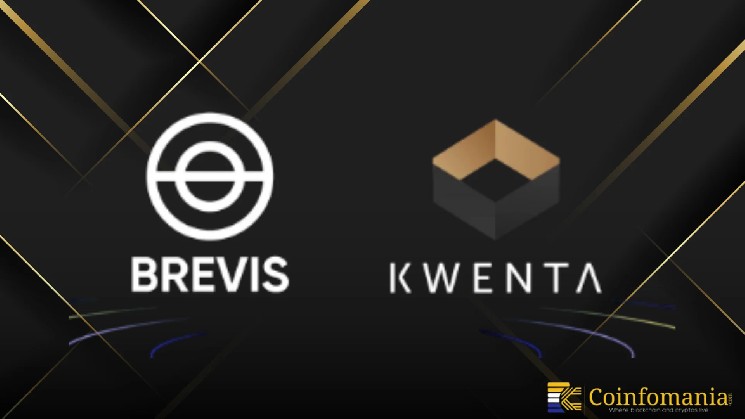
This has been a significant boost to the decentralized finance world. Brevis, a prominent zero-knowledge (ZK) coprocessor platform, and Kwenta, a decentralized derivatives exchange on Optimism have combined their forces to ensure more advanced DeFi trading is possible at a lower cost and safer. The partnership between onchain trading and verifiable computation is a new step forward in innovation in DeFi. The bridge between verifiable computation and onchain DeFi is getting stronger.@brevis_zk and @kwenta_io are working together to make advanced trading features more efficient.Brevis’ zk coprocessor integrates directly with Kwenta’s platform, enabling off-chain computation of… pic.twitter.com/HgHEcS2N1K — Da Vinci (@OxDavinci) November 1, 2025 Brevis Introduces Verifiable Computation to DeFi Brevis is an enhancement of smart contracts that allows them to retrieve and compute across multiple networks of historical blockchain data without losing privacy and scalability. It is an off-chain platform with zk-SNARKs, which are a form of zero-knowledge proof, to perform heavy computations off-chain and send verified results on-chain. This system saves gas expenses drastically and it is completely transparent. Brevis provides an SDK that developers can use to develop custom logic and computation circuits without having to learn ZK cryptography. The solution to the scalability issue that DeFi has faced is the biggest challenge that the integration addresses without impacting its transparency. With the use of Brevis, off-chain computation allows the processing of large volumes of trading without necessarily having to deal with high gas costs. In the meantime, zero-knowledge proofs can ensure the integrity and privacy of data, and even complex trading logic can be safe and verifiable. Kwenta Inks Trading Deal with zk Tech Kwenta is an application based on the Optimism Layer 2 network that enables users to trade perpetual futures priced in sUSD, a synthetic USD stablecoin that is pegged to Synthetix. Traders have the ability to go long or short, hedge market exposure, and have transparent trading (non-custodial). Kwenta is now able to perform complex trading calculations off-chain because it has incorporated Brevis, zk coprocessor. This translates to increased transaction speed, lower gas costs and scaling to a variety of blockchains. To the traders, it means the ability to experience fewer hickups and more Polished features, all without enclosing the trades to non-traders. This innovation creates Brevis and Kwenta as the leaders of the ZK-driven DeFi infrastructure of the next generation. It is also a general industry trend that ZK technology is being used to alleviate congestion in blockchains without loss of trustless execution. By 2025, the total value locked (TVL) of DeFi will exceed 300 billion with Layer 2 rollups like Optimism and Arbitrum. The collaboration of Kwenta with Brevis is another move towards this trend. The cooperation does not only increase efficiency but also draws institutional traders interested in scalable and auditable DeFi solutions. The members of the community note that this step will lead to more similar partnerships between ZK providers and DeFi platforms.
Top Best Performing Crypto Projects of October 2025, $XPIN Leads the Pack
9 hour ago
Shiba Inu Team Reveals Critical Security Update for Shibarium: Details
9 hour ago
Columbia Business professor casts doubt on tokenized bank deposits
10 hour ago
Catch Me If You Can’ inspiration, Frank Abagnale, talks about fraud at a crypto forum
11 hour ago
Is November the New October? Analyst Says It’s Bitcoin’s Strongest Month — Here’s the Data
11 hour ago
Digital euro CBDC is 'symbol of trust in our common destiny' — ECB head
11 hour ago